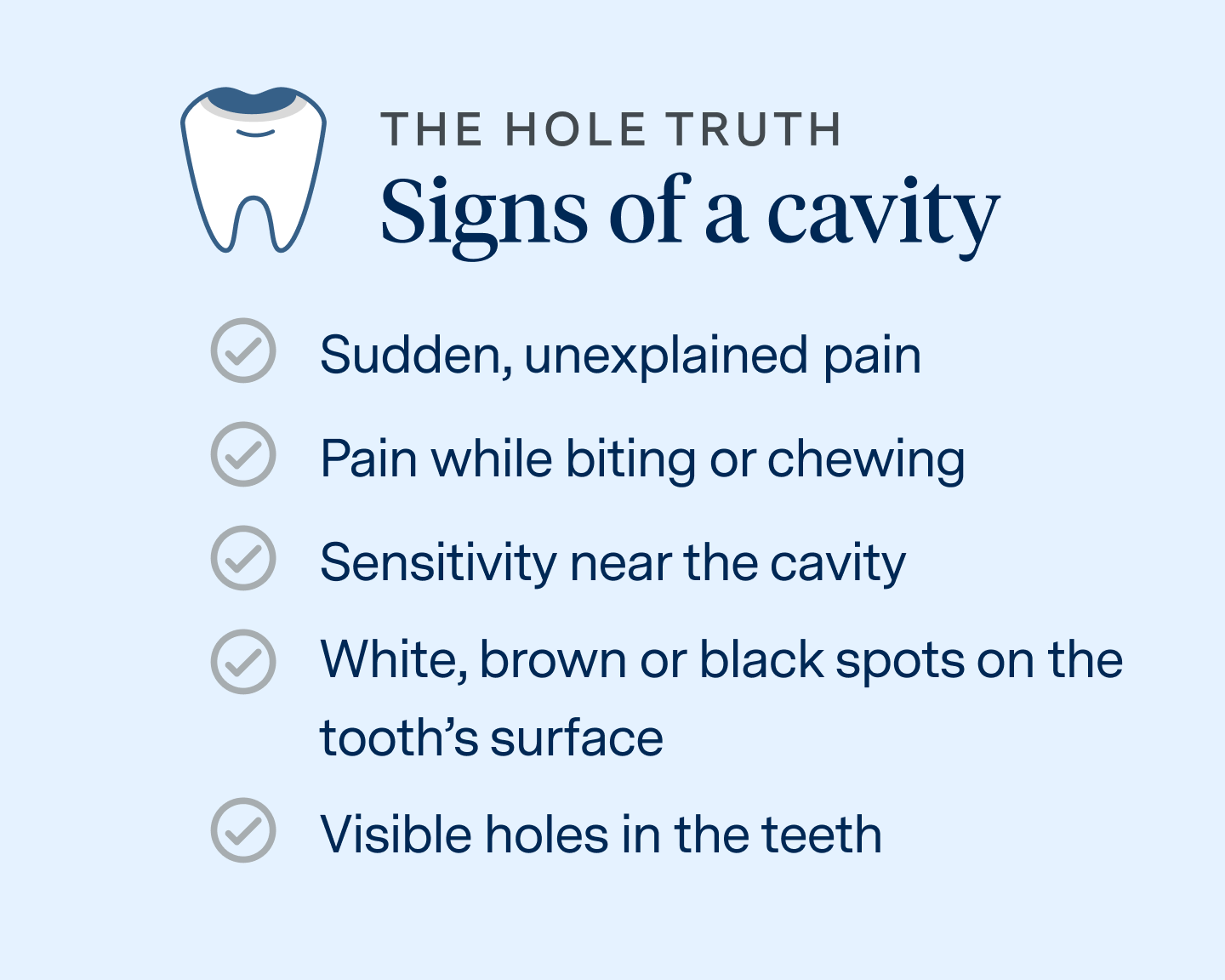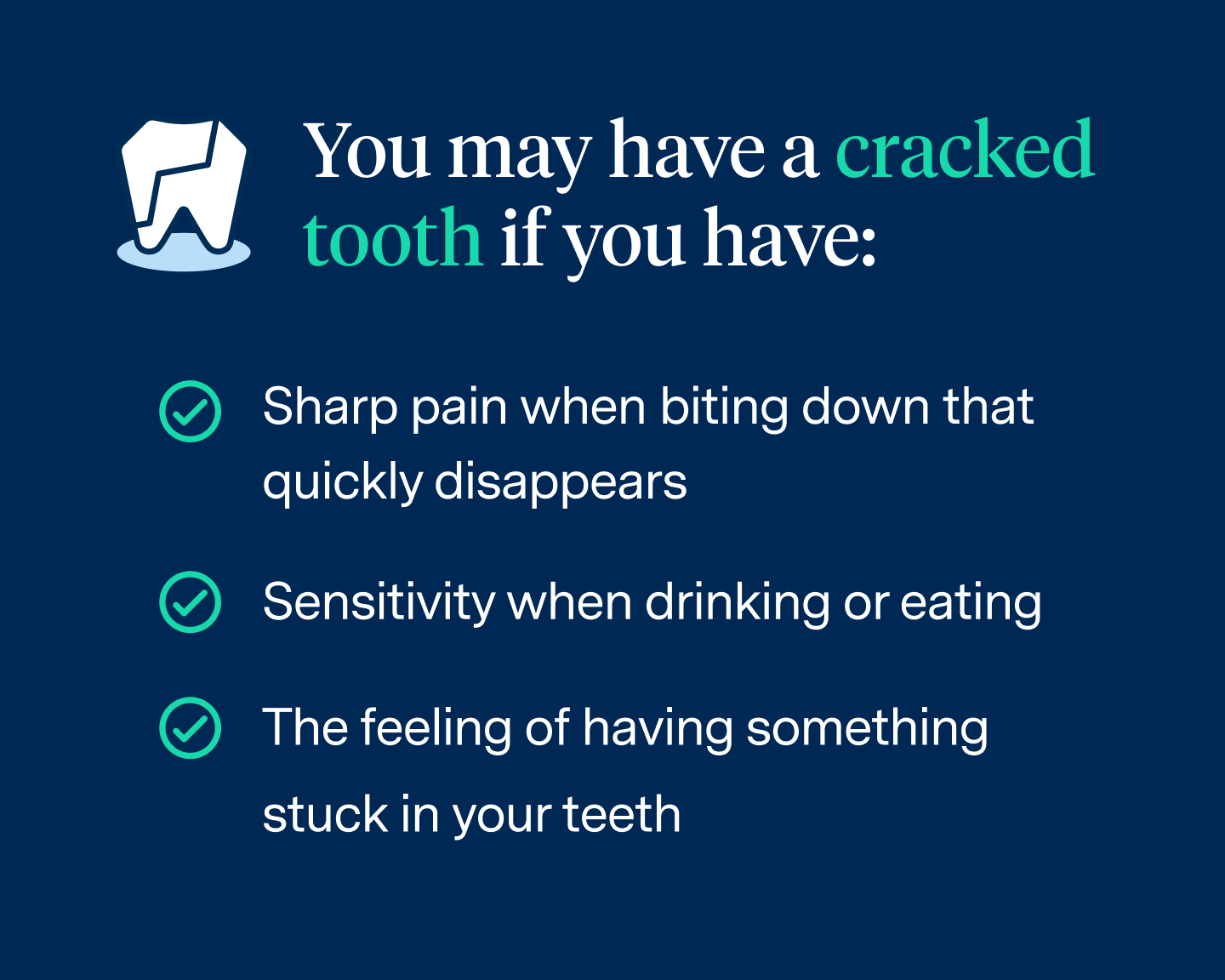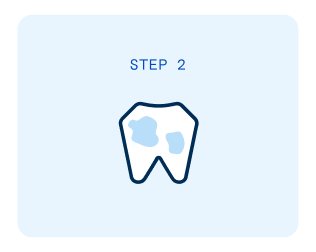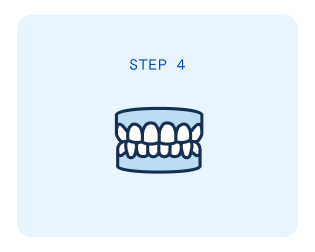Why a dental filling?
There are a few reasons why your dentist might recommend a dental filling:
✔️ To fill a cavity
✔️ To repair a cracked or broken tooth
✔️ To rebuild a tooth due to teeth grinding or nail biting

Cavity filling
Cavities are the most common reason to get a filling. Cavities form holes in the teeth caused by tooth decay. To fill that space, your dentist will remove the decay and fill the hole to prevent it from progressing. Bacteria, sugary food and poor dental hygiene are typical causes.

Repairing cracked or damaged teeth
If your teeth are cracked or damaged, they may require more extensive work than a simple tooth filling. Your Aspen Dental dentist may recommend a root canal and crown or extraction to relieve pain and prevent an infection from spreading.
Replacing an old dental filling
Over time, dental fillings can wear down, crack or become damaged. When this happens, they’ll need to be replaced. Signs that you may need a new dental filling include:
✔️ The filling has become visibly discolored over time
✔️ Increased tooth sensitivity
✔️ Rough or uneven edges around the filling
✔️ Persistent discomfort
Types of dental fillings
Composite tooth filling
Composite tooth fillings are the restoration of choice due to their natural appearance. They are made of a tooth-colored resin that matches your tooth’s shade, making them virtually unnoticeable.
Temporary tooth filling
Temporary fillings are a short-term solution used for dental emergencies, or to close up a root canal before you receive a permanent filling.
Glass ionomer fillings
Commonly used for children and small cavities. They release fluoride, which can help prevent further tooth decay.
Silver tooth filling
Silver tooth fillings are durable and cost-effective. They consist of metals, including mercury, silver, tin and copper. While effective, some people dislike the silver color and the use of mercury.
How do teeth fillings work?
Teeth fillings fill in the holes that are caused by decay. The process of getting them is a common dental procedure. See the steps below:

Local anesthetic
Your dentist will apply a local anesthetic to ease discomfort.

Decay removal
Any decay will be removed from the affected tooth or teeth.

Filled with care
The chosen type of filling will be applied to the affected area.

Bite check
Your dentist will perform a bite check to make sure your teeth align comfortably.
Tooth filling cost
At Aspen Dental, the full cost of a tooth filling ranges from $157-$344 per filling.¹ Costs can vary depending on various factors, including the location of the tooth in your mouth, the surfaces affected, what the filling is made of, your insurance coverage and any financing and warranty options.
Contact your local Aspen Dental office to determine your cost, based on your specific needs.

Tooth filling FAQs
What is a tooth filling?
A tooth filling is a dental restoration treatment used to repair a decayed, cracked or damaged tooth. It involves removing the affected portion of the tooth and filling the hole with a dental material to restore its structure, function and integrity.
Can someone experience tooth pain after filling?
Yes, it is possible for someone to experience discomfort after receiving a dental filling. This can be caused by a number of factors such as initial sensitivity, a high filling that requires adjustment, irritation of the tooth's nerve during the procedure, or, in rare cases, underlying issues like infection or an allergic reaction to the filling material. If you experience persistent or severe pain after a dental filling, you should contact your dentist immediately for a thorough evaluation and treatment.
What is a tooth gap filling?
Tooth gap filling, or dental bonding, is a cosmetic procedure to close spaces or gaps between teeth. Tooth-colored composite resin is applied to the affected area, which is then shaped and polished to blend in with the surrounding teeth. This is a good option if you wish to improve the appearance of your smile by addressing gaps, irregular spacing or minor cosmetic imperfections.
How long do tooth fillings last?
The lifespan of tooth fillings can vary depending on factors like the filling material used, oral hygiene, diet and the location of the filling. Generally, tooth-colored composite fillings can last five to 10 years, while silver amalgam fillings may last 10 to 15 years.
However, with proper care and regular dental check-ups, fillings can often last longer. Follow your Aspen Dental dentist’s advice on maintaining and monitoring your fillings for the best results.
Do tooth fillings hurt?
During the dental filling procedure, your Aspen Dental dentist will use a local anesthesia to numb the tooth and surrounding tissues. It’s common to feel some pressure or vibrations as the dentist works on the tooth.
After the anesthesia wears off, you might experience some mild discomfort or sensitivity, which usually subsides within a few days. If you experience severe or prolonged pain after a filling, contact your local Aspen Dental office for an evaluation.
Discover more for your smile